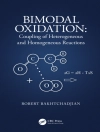The public health burden from lung cancer is substantial: it is the second most commonly diagnosed cancer and the leading cause of cancer-related deaths in the United States. Given the individual and population health burden of lung cancer, especially when it is diagnosed at later stages, there has been a push to develop and implement screening strategies for early detection. However, many factors need to be considered for broad implementation of lung cancer screening in clinical practice. Effective implementation will entail understanding the balance of potential benefits and harms of lung cancer screening, defining and reaching eligible populations, addressing health disparities, and many more considerations. In recognition of the substantial challenges to developing effective lung cancer screening programs in clinical practice, the National Academies of Sciences, Engineering, and Medicine held a workshop in June 2016. At the workshop, experts described the current evidence base for lung cancer screening, the current challenges of implementation, and opportunities to overcome them. Workshop participants also explored capacity and access issues; best practices for screening programs; assessment of patient outcomes, quality, and value in lung cancer screening; and research needs that could improve implementation efforts. This publication summarizes the presentations and discussions from the workshop.
Board on Health Care Services & Health and Medicine Division
Implementation of Lung Cancer Screening [PDF ebook]
Proceedings of a Workshop
Implementation of Lung Cancer Screening [PDF ebook]
Proceedings of a Workshop
Mua cuốn sách điện tử này và nhận thêm 1 cuốn MIỄN PHÍ!
Ngôn ngữ Anh ● định dạng PDF ● Trang 128 ● ISBN 9780309451338 ● Biên tập viên Erin Balogh & Margie Patlak ● Nhà xuất bản National Academies Press ● Được phát hành 2017 ● Có thể tải xuống 3 lần ● Tiền tệ EUR ● TÔI 7145259 ● Sao chép bảo vệ Adobe DRM
Yêu cầu trình đọc ebook có khả năng DRM












